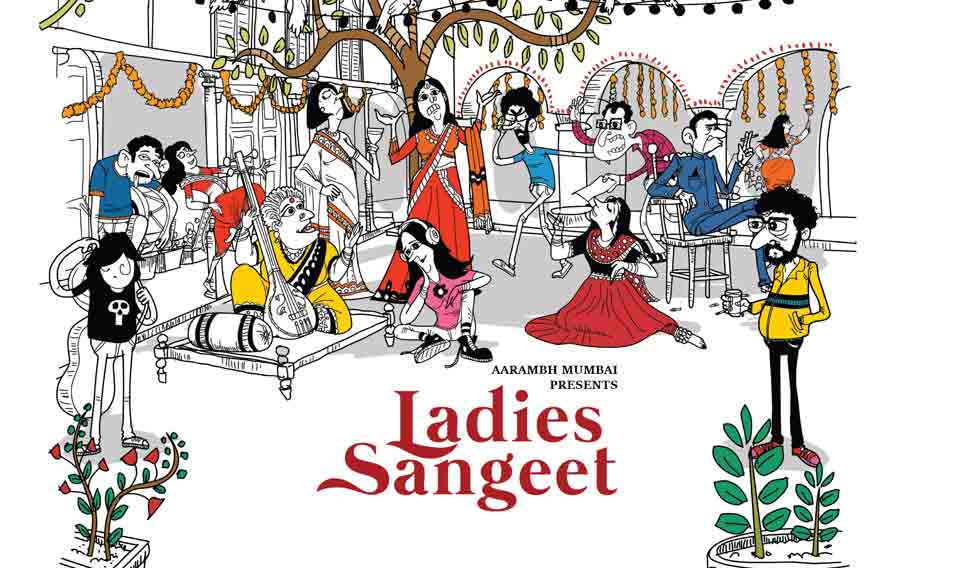Continuing with the experiential dimension of the second edition of Aadyam theatre festival—the precursor to Ladies Sangeet, staged last weekend, kept in with the play's theme. Delhi's Kamani Auditorium had been done up like a wedding function. Amid live music, a kulfiwalla handed out sweet treats while a flower-seller welcomed patrons with fresh jasmine flower bracelets.
Ladies Sangeet, by new director Purva Naresh, was the third work staged in the ongoing festival being held across Delhi and Mumbai and was the first original script in the line-up.
Set in an urban Indian household preparing for a wedding, the multi-layered work explores gender dynamics and the space for the contemporary in classical arts.
The story is told through several parallel tracks. A grandmother (Nivedita Bhargava) trying to teach her pop music fan granddaughter, Rukmini (Trisha Kale), traditional songs to sing at the function. Amid the festivities is the tussles between the ladies of the house—aunts and mother forcing the bride-to-be, Radha (Shikha Talsania), to fit into the heirloom outfits. Their face-off is between “regressive” concepts like using a ghunghat to 'control' the husband and discomfort endured to look good. Radha is more the commitment-jittery than the quintessential demure bride: no fancy diets to lose weight or elaborate hairdos, she smokes when stressed and hasn't shied away from pre-marital sex, much to her mother's horror.
The other, poignant track is between the bride's parents, Megha (Lovleen Mishra) and Yash (Joy Sengupta)—married for three decades but residing in separate rooms since five years. A supposed extra-marital has driven a wedge here.
The nearly 150-minute performance, which has music by Shubha Mudgal, proved to be not an easy watch. Not as much for its length as the theme. The coming out of an urban Indian married man, father of two, as transsexual is particularly captivating, thanks to the riveting performances by Sengupta and Mishra.
Hosadiya (Gopal Datt) as the wedding planner provides comic relief and philosophical nuggets on life and relationships, while Kale is lovable as the quick-witted granddaughter. Each track shows up long-held stereotypes on gender, sexuality and 'Indian values' and how that's churning in the present times.





